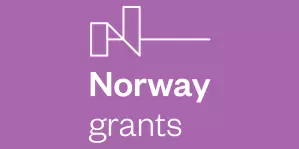BANGKOK RULES
A set of 70 rules focusing mainly on the treatment of convicted and imprisoned women. Their creation was initiated by the government of Thailand, and they were adopted by the UN General Assembly on December 21, 2010, supplementing so the general standards previously applicable to all prisoners. The rules call for the reduction of unnecessary imprisonment and draw attention to the specific needs of .
Historically, prisons and prison regimes have been designed primarily for the majority, i.e., the male prison population; From the buildings’ architecture, through security procedures, to health care, family contact, work, and education.
Bangkok Rules apply to all female prisoners, whether they are in custody or convicted. They regulate their contact with the criminal justice system through all its stages, from the pre-conviction period to their release.
They are supportive material for all representatives in the process of treating women prisoners and women offenders, be they policymakers, legislators, criminal justice authorities, or for example the prison staff.
The Bangkok Rules build on and are fully in line with the Standard Minimum Rules for the Treatment of Prisoners, which were first adopted in 1957. In 2015, they were revised and adopted as the Nelson Mandela Rules.

PRI (Penal Reform International) is a non-governmental organization working globally to promote criminal justice systems that uphold human rights for all and do no harm. Their objective is to make criminal justice systems non-discriminatory and protect the rights of disadvantaged people. They run practical human rights programs and support reforms that make criminal justice fair and effective. More information at www.penalreform.org/issues/woman/
EDUCATION
Part of the project is the education of experts who work with imprisoned and convicted women, e.g. the Probation and Mediation Service of the Czech Republic, the Prison Service of the Czech Republic, probation officers, social workers, human rights experts, academia, policymakers and representatives of political representation.
The goal is to improve the awareness of the experts in the field and to involve them in the creation of solutions. The experts will be informed about the growing number of imprisoned women in the Czech Republic and about the possibility of applying the Bangkok rules so that a discussion and interdisciplinary cooperation leading to ensuring the protection of the rights and specific needs of imprisoned women can arise.
MEETING OF EXPERTS
Expert support group/core group
a group of 5 – 6 experts from across the field, whose aim is to share project outputs and participate in solution proposals, including collecting suggestions for the practical implementation of the Bangkok Rules in the context of the Czech Republic and identifying the biggest obstacles
Round tables
participatory format, a group of approximately 15 experts from across the field and women with criminal pasts, whose aim is to share their experiences with the fulfillment of rights of convicted women in Norway, discuss the application of the Rules, especially rules 46 and 47, and to the rising number of women prisoners and possible ways how to further apply the Bangkok Rules in practice
Webinar with a Norwegian expert
expected number of participants: 90 from across various fields, the goal is to raise awareness about this issue and share good practices of protecting human rights of imprisoned women in Norway
Bangkok Rules Club
an informal network of experts across fields (e.g. advisory bodies dealing with incarceration, gender equality, and human rights, networks of relevant NGOs, incarceration and criminal justice practitioners from the Prison Service and Probation and Mediation Service), the goal is to raise awareness about this issue, search for possible solutions and ways to apply the Bangkok Rules in the Czech Republic, and connect with other groups into so-called transversal cooperation.


